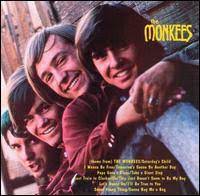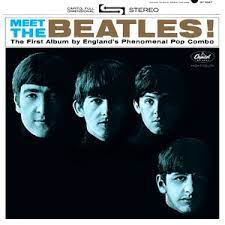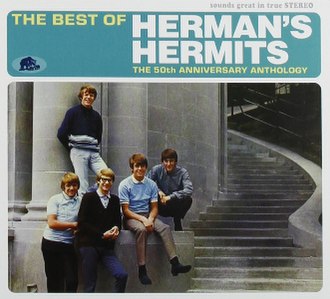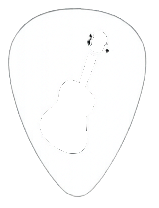The Best Songs By The Seekers You Can Play On Guitar
Take a nostalgic journey with the sweet harmonies of The Seekers — one of Australia’s most beloved 60s folk-pop groups.
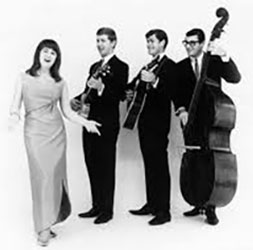
In this lesson collection, you’ll learn to play 7 of their most iconic songs on acoustic guitar, including Georgy Girl, Morningtown Ride, and I’ll Never Find Another You. Each section includes chord info, rhythm tips, tuning, and a short demo video to guide your playing.
Whether you’re a longtime fan or just discovering their timeless charm, these tunes are perfect for strumming and singing along.
🎸 Overview Video - “Watch This Preview of The Seekers Guitar Songs”
The Seekers Guitar List
1. A World Of Our Own2. Georgy Girl
3. I'll Never Find Another You
4. Morningtown Ride
5. Red Rubber Ball
6. The Carnival Is Over
7. Walk With Me
1. A World Of Our Own - Learn To Play On Guitar
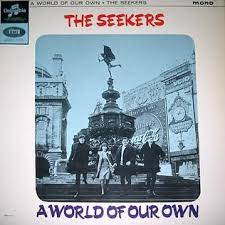
A World Of Our Own was written by Tom Springfield and was recorded by The Seekers in 1965. It was released as a single and hit the top 10 in several countries including a #1 in South Africa. It peaked at #19 on the Billboard Hot 100.
The song is a gentle and romantic ballad that features Judith Durham's lead vocals, accompanied by the group's trademark harmonies and acoustic instrumentation.
The song has become one of The Seekers' most beloved songs and it is still played and enjoyed by fans around the world.
Chords And Strumming
I I play this one with a capo 3rd fret in standard tuning and the chords G, D, C, Bm, Em, A7, E7, B7 and a D7. Play a root down up down up down up and repeat rhythm pattern and pick the main riff in places throughout the song.
Guitar Lesson Details - (chords & lyrics sheet incl with lesson)
Back To Song List
2. Georgy Girl - Learn To Play On Guitar
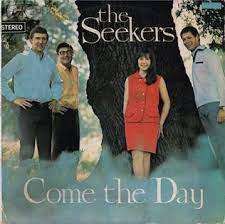
Georgy Girl is one of the most well-known and popular songs by The Seekers. It was written by Tom Springfield and Jim Dale and was recorded by the group in 1966. The song was also featured as the title track for the British film of the same name, which was released in the same year.
The song was a huge hit for The Seekers, reaching the top of the charts in several countries, including the US, UK, and Australia. It has since become a classic of the 1960s pop era and is still played and enjoyed by many people today.
The album release in the US was changed from the British release of "Come The Day" to "Georgy Girl".
Chords And Strumming
This song also just has a main picking riff you'll blend into the chords which are C, Em, F, Gsus, G, A#, Am, E7, D7 and an Am/G. Play a down up stop up down up stop up and repeat rhythm pattern in standard tuning.
Guitar Lesson Details - (chords & lyrics sheet incl with lesson)
Back To Song List
3. I'll Never Find Another You - Learn To Play On Guitar
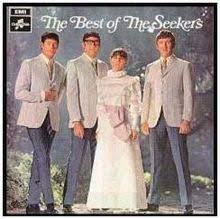
I'll Never Find Another You is one of the most well-known and beloved songs by The Seekers. It was written by Tom Springfield.
The song was released as a single in 1965 and became an instant hit, reaching the top of the charts in Australia and the UK. In the US the song reached #4 and #2 on two separate charts.
The track can be found on "The Best Of The Seekers" album and in 1967, country artist Sonny James took it to #1.
Chords And Strumming
I play a capo 3rd fret with drop D tuning in this one with the chords G, C, D, A7, D7, Bm and a D/C. Just a main picking riff while playing a root down up down up down up and repeat rhythm pattern.
Guitar Lesson Details - (chords & lyrics sheet incl with lesson)
Back To Song List
4. Morningtown Ride - Learn To Play On Guitar
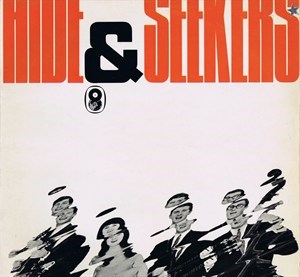
Morningtown Ride was originally included on the group’s 1964 album Hide & Seek. Although recorded early in their career, it was released as a single in the UK in 1966 to capitalize on the band's rising fame, where it climbed to number 2 on the charts.
In the United States, the song reached number 44 on the Billboard Hot 100. Written by American folk activist Malvina Reynolds, the lyrics describe a lullaby-like train journey with "The Sandman" as the conductor.
A fun fact is that the song’s gentle, nursery-rhyme quality led to it becoming a standard in primary schools across Australia and the UK.
Chords And Strumming
Play this one with a root down up down up down up and repeat rhythm pattern with the chords G, G7, C, Am, Em, D and a D7. There is no lead in the original but I put in a lead break here in my version in standard tuning.
Guitar Lesson Details - (chords & lyrics sheet incl with lesson)
Back To Song List
5. Red Rubber Ball - Learn To Play On Guitar
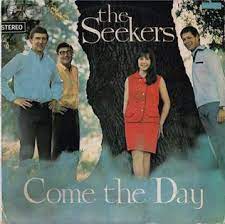
Red Rubber Ball is a song that was written by American songwriters Paul Simon and Bruce Woodley (who was a member of The Seekers) and was recorded by The Seekers in 1966. The song was originally recorded by American folk-rock band The Cyrkle in the same year.
The Seekers' scored a #1 In Canada, South Africa and New Zealand and a #2 in the US.
This track can be found on The Seekers "Come The Day" album. Mel Torme, Neil Diamond and Cliff Richard are some of the artists who have also covered the song.
Chords And Strumming
Play a root down up down up down up and repeat rhythm pattern here with the chords G, Em, Bm, C, D, D/Gb, Am and B7 in standard tuning. There is a riff you'll need to play with the rhythm pattern root down up down up down up and repeat.
Guitar Lesson Details - (chords & lyrics sheet incl with lesson)
Back To Song List
6. The Carnival Is Over - Learn To Play On Guitar
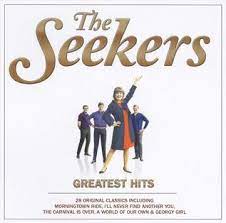
The Carnival Is Over is from an old Russian folk song that Tom Springfield converted over to English and wrote lyrics so it could be recorded by The Seekers back in 1965.
The song is a powerful and emotive ballad that features Judith Durham's lead vocals, accompanied by the group's distinctive harmonies and acoustic instrumentation.
The song has become a concert closer since 1965. The song was #1 in the UK, Ireland and Australia. This song was released as a single and not part of an album until the 1968 release of "The Seekers Greatest Hits" album was released. German group Boney M also covered the song.
Chords And Strumming
I use a capo 2nd fret with drop D tuning for this number with a down down up down down and repeat rhythm patterm. No lead to deal with as you play through the chords A7, D, G, D, Bm, A7sus, Gbm and a C.
Guitar Lesson Details - (chords & lyrics sheet incl with lesson)
Back To Song List
7. Walk With Me - Learn To Play On Guitar
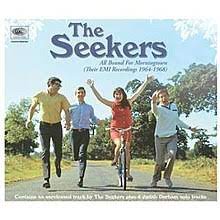
Walk With Me was a song by The Seekers which was featured on their album "All Bound for Morningtown."
"Walk with Me" is a gentle and heartfelt ballad that features Judith Durham's emotive vocals, accompanied by the group's signature harmonies and acoustic instrumentation. The song was written by the group's guitarist, Keith Potger, and was released in 1966.
Play a capo 2nd fret in standard tuning for this one with the chords Am, Dm, E7, G, C, A7, Fm and an Esus. A bit of lead while playing a down down up down up down down down and repeat rhythm pattern.
Chords And Strumming
Play a capo 2nd fret in standard tuning for this one with the chords Am, Dm, E7, G, C, A7, Fm and an Esus. A bit of lead while playing a down down up down up down down down and repeat rhythm pattern.
Guitar Lesson Details - (chords & lyrics sheet incl with lesson)
Back To Song List
The Seekers created a sound that blended folk warmth with pop sensibility, and these songs still resonate decades later.
With this collection of acoustic tutorials, you’ll bring their classics to life from your own living room.
Be sure to check out the overview video near the top of the page for quick demos, and remember — each full lesson is available for instant download when you're ready to dive deeper. Happy strumming!
If you liked The Seekers guitar songs page you might also like ... (click images)
Home Page
Popular Songs From The 60s
